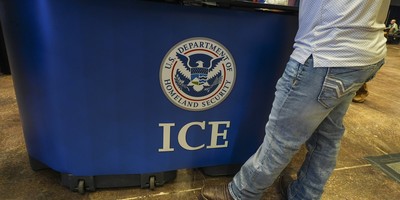The Trump administration recently finalized two rules meant to reduce Medicare drug prices -- while ignoring some serious unintended consequences.
For seniors, the rules are a mixed bag. One will help patients save money at the pharmacy. But the other, the "most-favored-nation" rule, is likely to backfire, reducing access to treatments in the long run.
The most-favored-nation rule prohibits Medicare from paying more for certain advanced medicines than the lowest price paid in other wealthy countries. It applies to physician-administered drugs, including treatments for osteoporosis, kidney disease and cancer.
The list price of many of these drugs are deeply discounted in other countries. According to a Department of Health and Human Services report, Medicare could have saved over $8 billion in 2016 alone had it paid the average international price for such medicines. So on the surface, Trump's price-matching scheme appears to save seniors -- and taxpayers -- a considerable sum.
But the full story is more complicated. Other countries like Canada, the United Kingdom and Germany pay less for drugs by instituting artificial price controls and imposing higher taxes. These price caps discourage drug companies from investing in research and development. Innovative biopharmaceutical companies typically spend billions of dollars and more than a decade to bring just one new treatment to market. As a result, companies are reluctant to launch new drugs in price-controlled countries, for fear they won't be able to recoup their astronomical investments. In 2017, for instance, companies launched 75 percent of the world's new treatments in the United States before introducing them anywhere else.
Oftentimes, patients in those price-controlled countries never gain access to new medicines at all. Americans could access 88 percent of the 243 new drugs brought to market between 2011 and 2018. Germany and England, meanwhile, could access fewer than 70 percent. Canadians were even worse off, able to access just 49 percent. Price controls and rationing have simply made drugs unavailable to the citizens of these developed nations.
Recommended
Copying other countries' price controls will take lifesaving medicines out of circulation here as well. When it issued the most-favored-nation rule, the Centers for Medicare and Medicaid Services freely acknowledged that some of the projected savings are "attributable to beneficiaries not accessing their drugs." Patients with chronic diseases, who regularly go to a hospital or clinic for treatment, may find that their doctors can't offer the medicines needed to treat serious and life-threatening conditions.
The news isn't all bad, of course. The Trump administration came up with a good new rule for Medicare Part D, which covers most of the prescriptions that seniors pick up at their local pharmacies. Part D functions differently than the rest of Medicare. It's administered by private insurers, who offer a variety of plans and compete with each other to win seniors' business.
Those private insurers often hire middlemen, known as pharmacy benefit managers (PBMs), to help decide which medicines to cover and which to deny.
To ensure their drugs are available to patients, pharmaceutical companies offer huge rebates to these PBMs. These middlemen pay, on average, 30 percent less for drugs than the list price.
But the law doesn't require the PBMs to pass rebate savings on to patients through lower co-pays and co-insurance. Imagine, for instance, that a drug's nominal list price is $500, and the insurance plan calls for the patient to pay 20 percent. The insurer might have paid just $350 after accounting for rebates. But the patient will still pay $100 -- 20 percent of the full list price -- at the pharmacy, instead of $70. That's placing avarice above the public good. Trump's rebate rule ends this shady practice, making it illegal for the middleman to accept rebates unless the savings are passed along to patients at the pharmacy.
The administration's parting actions offer good and some bad policies for seniors. President-elect Biden has the opportunity to preserve Americans' access to cutting-edge medicines -- by nixing the most-favored-nation rule -- while preserving the rule that passes drug savings on to patients.
Peter J. Pitts, a former Food and Drug Administration associate commissioner, is president of the Center for Medicine in the Public Interest.

























Join the conversation as a VIP Member